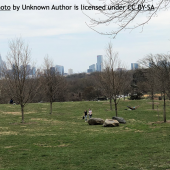
Abstract: This case study discusses the implementation of a park audit project with undergraduate college students in teacher education and public health programs. With a focus on drawing attention to the importance of urban green spaces in these two professional fields, the design of this project extended course activities into local parks. Students prepared to conduct park audits by engaging with course material focused on the importance of urban green spaces for individual health and children’s development, as well as inequities in access to high quality parks. The capstone of the course project was the audit of parks using the Community Parks Audit Tool (CPAT) in which each student assessed several parks in their local communities and documented their findings. This article discusses the contextual relevance of this project, its value in increasing attention to environmental considerations in the education and public health fields, as well as student responses to the implementation of the project in these specific classes.
Continue Reading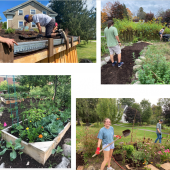
Abstract: This case-study supports the implementation and social investment in university campus community gardens as an interdisciplinary resource for academic research, extra-curricular activities, and community building. Using a permaculture design model, the St. Lawrence University community permaculture garden in Canton, New York State exists to enhance the diverse academic curriculum and varied community engagement opportunities to provide experiential and interdisciplinary learning opportunities for students, faculty, staff, and remaining stakeholders. This case-study will focus on one of St. Lawrence University’s student-led clubs, its operations, history, and challenges (e.g., participant transience). Our findings suggest that campus permaculture gardens require adequate investment, including financial and academic support. The development of a conceptual seasonal and academic community calendar provides a fundamental framework for operations and governance. The sheer number of opportunities and broad capacity of the club and the presence of physical student space brings meaningful accessibility and community engagement. Over time, the club and garden has remained resilient due to a holistic approach which keeps the bigger picture in mind. Each year the club faces a variety of challenges and obstacles, yet such experiences have provided opportunity for adaptation and evolution. Recommendations can be used to support a replicable model for other educational environments and communities in both urban and rural areas, interested in developing a permaculture garden as a resource that improves social cohesion during a time of ecological fatigue, social unrest, the COVID-19 pandemic, and climate change.
Continue Reading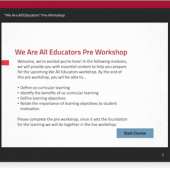
Abstract: Staff members play an important role in guiding students through living lab sustainability projects at Harvard University. Since there are significant opportunities for co-curricular learning in these settings, we created the “We Are All Educators” professional development workshop to empower those staff members to optimize and track student learning throughout these projects. In this case study, we will briefly summarize key principles of CCL and discuss its benefits as a tool for sustainability education in higher education. We will also describe our planning and implementation process for the workshop, the content of our training materials, and the results. Finally, we will end with key takeaways, as our workshop may be applicable to co-curricular learning in a variety of higher education contexts.
Continue Reading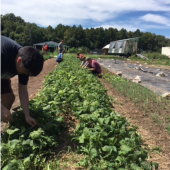
Abstract: This research explores the role that place attachment and place meaning towards an urban farm play in predicting undergraduate students’ civic-mindedness, an important factor in sustainability and social change. In 2017 and 2018, three STEM courses at a private university in the Midwest incorporated a local urban farm as a physical and conceptual context for teaching course content and sustainability concepts. Each course included a four to six-week long place-based experiential learning (PBEL) module aimed at enhancing undergraduate STEM student learning outcomes, particularly place attachment, situated sustainability meaning-making (SSMM), and civic-mindedness. End-of-course place attachment, SSMM, and civic-mindedness survey data were collected from students involved in these courses and combined with institutionally provided demographic information. Place attachment and SSMM surveys, along with the course in which the students participated, were statistically significant predictors of students’ civic-mindedness score.
Continue Reading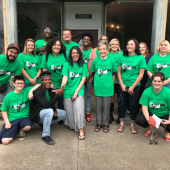
Abstract: In the summer of 2019, the We are All Connected urban-rural youth media program launched Something in Our Water, an eco-media documentary project that investigates the shared problem of water sustainability, public health, and climate change in their communities. This article discusses the transformative experience that the youth from New York City and the Clearfork Valley in the East Tennessee Appalachian mountains had as they learned about the history of multinational coal mine companies’ economic and environmental exploitation of the community, and the fierce and unequal power relations that continue to challenge environmental advocates today. With a focus on the perspectives of one of the Tennessee youth producers, the article reflects on the impact intergenerational learning and multicultural collaboration can have in nurturing future youth and community eco-media activists in Appalachia in the face of deeply rooted local and structural constraints. Through the process of documenting struggles in urban and rural communities, the youth team developed a deeper understanding of how the environmental justice movement cuts across differences to show how everyone is connected and can be empowered to take action.
Continue Reading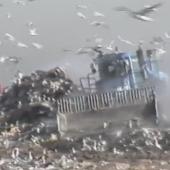
While teaching about climate change in K-12 schools often focuses on the catastrophic crises it is causing on a global scale, for students from poor and historically marginalized communities a pedagogy of environmental justice centers their own local neighborhoods, schools, and homes as sites for investigation and action. The Educational Video Center (EVC) in New York City has practiced this critical pedagogy for over 30 years developing students’ media literacy and civic engagement as they learn to question and bear witness to the toxic environmental conditions in their communities. Links to EVC student produced documentaries spanning three decades chronicle the impact of garbage landfills in the ground, sanitation truck fumes in the air, lead dust and black mold in the walls of their public housing apartments. Through these inquiries, students learn how such environmental pollution is linked to disproportionately high rates of lead poisoning and chronic asthma among low income communities of color. As a form of participatory action research, they not only learn to use the power of media to educate the public about the inequitable policies that produce these environmental and public health crises. They also use their videos to make a call to action for greater accountability and sustainable environmental justice.
Continue Reading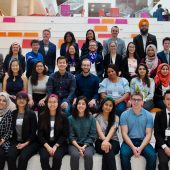
The Calgary Interprofessional Challenge (CIC) engages university students across disciplines in a novel 44-hour hackathon based on faculty and peer-to-peer interprofessional education. CIC uses short introductory talks on problem-solving in different faculties, a series of workshops, and expert mentorship from university faculty, relevant specialists, and entrepreneurs as its core curriculum. A recent offering of CIC used the campus as a learning lab by focusing on a sustainability challenge at our university. The CIC model can be replicated at other campuses to advance sustainability, while cultivating interprofessional and sustainability practice competencies such as stakeholder engagement, group collaboration, and understanding of different worldviews and relationships.
Continue Reading
Abstract: This paper introduces an experiential learning assignment “Snow Challenge 2015” incorporated into an undergraduate-level interdisciplinary humanities and social science-based course focusing on a single Arctic Indigenous culture: the Sámi [Lapps] of Finland, Norway, Sweden, and the Kola Peninsula. The assignment used the open-source app Siftr and an accompanying open-access informational website on Sámi snow terms to allow students to apply Lule Sámi snow terminology to snow phenomena they observed in and around their home campuses and neighborhoods. The assignment’s goal was to enhance student learning related to each of the four categories of environmental literacy presented in Hollweg et al.’s (2011) framework: knowledge, attitudes, competencies, and behaviors. A content analysis of a random sampling of student essays written at the conclusion of the assignment showed significant enhancement of student learning, particularly in the areas of attitudes and competencies. The assignment helped model for students the value and nature of an Indigenous-centered curriculum and the pragmatic nature of Indigenous traditional knowledge in living effectively within a winter environment.
Continue ReadingThis case study shares a unique educational experience that combined sustainability and design education with international partnerships that sought to investigate and visually analyze relationships between housing design and water infrastructure in both Pittsburgh, PA (USA) and urban centers of Indonesia. This project built upon an existing foundation of international relationships between faculty and institutions within a consortium framework. The project used a pre-course and a faculty-led student trip to establish relationships among faculty and students based in the United States (US) and Indonesia and to determine preliminary shared research goals to be built upon for future research collaborations that can attain a deeper and longer-term relationship. Students who participated in these courses refined their visual communication skills, gained a valuable global perspective on urban water management, were exposed to participatory photography as a research tool, and were strongly affected by their cultural experiences in Indonesia. Peer work between US and Indonesian students provided opportunities for students to exchange ideas and perceptions about the observed environment, which are influenced by their familiarity and unfamiliarity with the setting. The experience of this project can serve as a primer for the sustainability educator who is interested in interdisciplinary and international educational endeavors.
Continue Reading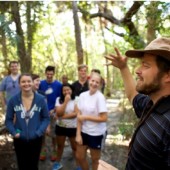
Abstract: In this article, I explore the future of higher education within the context of teaching and learning for sustainability. Challenges currently facing sustainability education are identified along with opportunities to face these challenges in ways that are transdisciplinary and holistic. I make the case that envisioning the future of sustainability education enables practitioners and educational theorists to better meet the needs of today’s generation without compromising the ability of future generations to meet their needs (World Commission on Environment and Development, 1987). My vision of the future of sustainability education in higher education is grounded in transformative, experiential, and place-based approaches. Engaging students in authentic inquiry in the classroom enables students to become better citizens and stronger problem solvers within the context of sustainability and beyond.
Continue ReadingAbstract:
This paper describes a role-playing, negotiation “game” based on the Xayaburi Dam in Laos. We have used this activity in our graduate programs as a tool for bringing to life the complexities of decision-making around natural resources, economic development, and sustainability. Over the past several years of using the game in the classroom, we have found it to be an effective means of exposing students to the kinds of opportunities and constraints that different stakeholders face as well as the kinds of communication and negotiation tactics they might use to influence outcomes. We provide background on the real-world situation on which we based the fictional scenario for the game and discuss the learning outcomes we have observed.
This paper examines the conceptualization and implementation of teaching inequality through placed-based and experiential learning while focusing on issues that impact the sustainability of communities through the effects of the social and historical constructs of race, class, and gender. The goal is to push students to rethink issues of sustainability in a more holistic way including social, economic, and political aspects to sustainability. In turn, students are empowered through a Freirian pedagogy to become “student-teachers” for the society in which they live in partnership with a local community organization to create public interactive history exhibits that create educational opportunities to both identify and document historical and current inequalities and their effects on the present moment and to encourage the community to engage with and analyze their own history in a manner to create meaningful dialogue and public discussion for the creation of a more equitable and sustainable society.
Continue ReadingChronicling a semester-long civic engagement project, this essay explores the efforts of a senior seminar course to collaborate with a local wilderness preservation organization. The essay reflects on the role of students in their communities, their connections to wilderness, and the challenges and rewards of civic engagement.
Continue Reading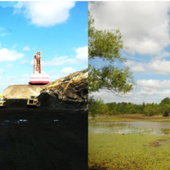
This paper describes a three-week professional development program, for inservice science teachers, which included on-site field trips to different energy production sites, explored the variety of opinions about them (via film, podcasts, news media, and expert lectures), and incorporated mathematical modeling as a lens through which to evaluate the relative sustainability of each energy type. The teacher participants explored oil, natural gas, hydroelectric, nuclear, wind, and coal energy production methods. This paper describes in detail their experience at a coal strip mine and a coal fueled power plant. For each type of energy, the teachers completed a pre- and post-assessment on their understanding of how the energy source was used to generate electricity and their perceptions of the environmental costs of each. The participants’ change in understanding of the energy production methods and increasing awareness of environmental costs are shared. Further, in their own words, participants describe the impact of the professional development on their own knowledge base and their classroom teaching as well as their perceptions of experiential learning as a vehicle for conceptual change.
Continue Reading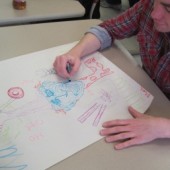
A personal reflection, from the professors’ perspective, of an arts integrated learning tool created to teach systems concepts in college level environmental studies and sustainability courses.
Continue Reading
Project-based community service learning increases the effectiveness of sustainability education and demonstrates the importance of providing children with opportunities to be healthy, happy and eco-literate global citizens. At Wright State University, as students learned environmental and socio-economic content, they became informed citizens who were empowered as local change agents. Insights from these case studies illustrate how we can engage college students to foster skills as informed decision-makers and engaged future teachers. Examples of curricular models are proposed for educators and students to effectively address environmental dilemmas by integrating scientific content knowledge with civic engagement to best prepare sustainably literate citizens.
Continue Reading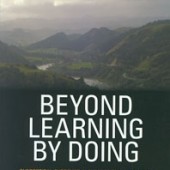
eview of Roberts. J. W. (2012). Beyond Learning by Doing: Theoretical currents in experiential education. New York, NY: Routledge. 129 pages. ISBN 978-0-415-8828-8
Continue Reading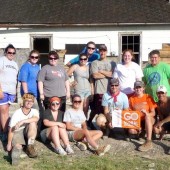
After Hurricane Katrina devastated parts of the Gulf Coast, Susquehanna University (SU) responded by launching the Hurricane Relief Team (HRT) program. In the past six years, SU has sent 16 teams of 15-20 students each and the program has evolved from a basic volunteer service opportunity into a service-learning experience and later into a two-week, cross-cultural service-learning program. While this study is not designed to determine whether participation in HRT, as a specific program, impacted graduation rates, it is intended to provide support for the correlation between civically engaged students and persistence to graduation. Through this example of a cross-cultural, service-learning program, the examination of graduation rates of HRT participants provides evidence of the potentially transformative nature of the experience as derived from historical data.
Continue Reading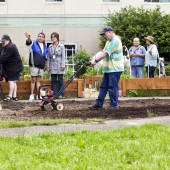
Experiential and inclusive sustainability leadership practices in learning garden programs can lead to increased community food security. This recent study shows that Oregon Food Bank’s Seed to Supper program increases food literacy, builds social capital, and creates opportunities for fostering inclusive leadership in learning garden communities. Through a mixed-methods community-based research process, the study found that learner empowerment through food literacy and sustainability leadership increased access to locally-grown foods for food insecure populations. The leadership model discussed in this paper uses the concept of the web of inclusion (Helgesen, 1990) as a framework for discussing the intricate social networks within the Seed to Supper program.
Continue Reading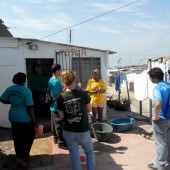
It is widely acknowledged that the sustainability challenges facing the world require new approaches to teaching and learning. At the community level, however, sustainability priorities are context specific, so prescriptions of what and how to teach for sustainability are limiting. In higher education, one innovative approach to sustainability education that acknowledges the limits of conventional coursework involves courses based on “shared action learning” – a process in which students, faculty, and community sponsors share learning experiences while working on sustainability projects for a specific community. Shared Action Learning can be applied in any community context near or far from campus ranging from the very local campus community to distant settlements across the globe. This paper describes the processes, opportunities and challenges of shared action learning through five stages: (1) project impetus, (2) contextual research and project planning, (3) community engagement and project refinement, (4) action, and (5) reflection and reporting. The roles of students, faculty, sponsors, and communities throughout the semester-long shared action learning project are explored through two examples – a course at Clark University in Worcester, MA that focuses on SAL within the college campus community and a Worcester Polytechnic Institute program through which students work on projects with partners in informal settlements in Cape Town, South Africa.
Continue Reading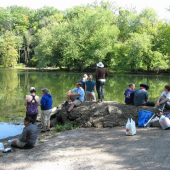
Regional movements toward sustainability recognize that we share a common future. An approach to sustainability education infused with social justice requires joining this common endeavor alongside transformational approaches on individual, community, and larger scales. Transformation occurs most deeply through developing personal relationships with others working in these complex areas. Such relationships humanize abstract issues and build empathy, and they also help learners to better understand and describe ways in which they share similar motivations towards sustainability with others who initially seem quite different from themselves. This paper describes how a residential and experiential undergraduate semester in sustainability studies used personal encounters with a diversity of actors in our watershed to illustrate the range of people who must be considered and included in moving toward regional sustainability. Engaging a broad spectrum of people enables students to acknowledge the need to move forward alongside those who are different from and similar to themselves in various ways, redefining “them” as “us” within the watershed.
Continue Reading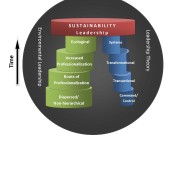
Colleges and universities are rushing to respond to an increasingly urgent challenge: developing the next generation of sustainability leaders. Although diverse in program design, teaching methodologies, assumptions, and skills taught, sustainability leadership programs, with experiential education as a core methodology, are rapidly emerging. This study – the first comprehensive attempt to analyze this phenomenon –explores three primary questions via interviews with 20 program directors and analysis of 50 programs’ materials: 1) What program designs and teaching strategies are sustainability leadership programs utilizing? 2) What principles and assumptions underlie these training methodologies? 3) What are the key requisite skills for sustainability leadership development? The analysis reveals that programs currently focus on network-building, systems thinking and project-based learning. Program leaders define sustainability broadly, with an emphasis on social justice. They focus on communication and engagement in defining leadership. Challenges in program design include the tradeoffs of breadth versus depth as well as tradeoffs in training in specific skills versus analytical methods. Programs tend to either focus on leadership with sustainability as one application or sustainability education with leadership as a subtext. Consistent across programs is the emphasis on peer-to-peer learning. Best practices for program design include employing experiential learning, integrating disciplines, moving beyond sustainability knowledge, building community, expanding the boundaries of transformational leadership, change agent training, and acquiring specific skills. While the growth of sustainability leadership programs appears slated to continue in the near-term, the lack of effective assessment limits the ability to demonstrate success and may be a barrier to future growth.
Continue Reading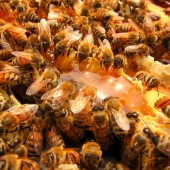
The Ashland Apiary Project is a multi-pronged, multi-aged learning design that uses beekeeping as a thematic avenue for hands-on experiential learning and the cultivation of land stewardship. The project is a student-led, collaborative effort by Southern Oregon University to establish an on-campus apiary that serves as a model of place-based and community-based education for a wide audience of students in an elementary, secondary, and collegiate setting. Through the Ashland Apiary Project, the pedagogic approach of “apiary-based learning” is considered in the field of sustainability education.
Continue Reading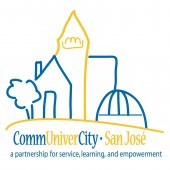
Experiential learning, and more specifically, service learning (SL) can serve as an ideal mechanism to support sustainability education. In particular, because of its emphasis on collaboration between students, faculty, and the community partner(s) and on social change and civic engagement, SL provides an excellent vehicle to address issues related to social justice. In this article, we document a unique SL partnership at San José State University—CommUniverCity. CommUniverCity’s primary mission is to build social capital and empower residents in an underserved community near the university. Each year, students, faculty and residents invest more than 21,000 hours in service to the community. Because of its unique mission, sustainability-related projects lie at the heart of what CommUniverCity does. We analyze student surveys from more than 30 classes engaged in SL projects during 2012 across a wide range of disciplines. All projects address at least one, and often multiple “Es” of sustainability. Our findings indicate that students find value in the SL experience, not only in terms of better understanding of the course subject matter, but also in terms of their understanding of “community” and the larger issue of social justice and equity.
Continue Reading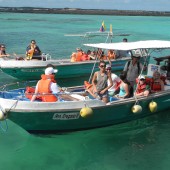
Joe Treaster showcases an intense experiential learning course using audio recordings to create original student work in the Galapagos Islands. he makes the strong case for the transformative nature of study-abroad experiences when students are challenged to be directly involved in the communities and locations where they go to study.
Continue Reading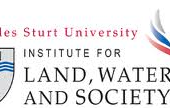
PDF: Rafferty and Laird, Spring 2013 Abstract: This paper explores the observations and perceptions of school children as they engage with nature through place based environmental experiences. The paper reports on two projects, one based in the USA and the other in Australia, designed to promote understanding of sustainability through outdoor […]
Continue Reading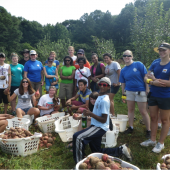
These twenty high school students were part of the first Conservation Leadership in Action Week, an experiential conservation camp hosted by the Tennessee Aquarium and Baylor School in Chattanooga, TN. These ambitious teenagers spent the week discovering conservation challenges, including urban water quality, biodiversity of Tennessee rivers and streams, and how day-to-day actions impact our environment. Sustainable Food Day was a big hit, as students spent the morning on a local farm picking beets. With the help of a local chef, students cooked these beets for dinner that evening. For many, it was the first time they were responsible for their food from farm to table.
Continue Reading